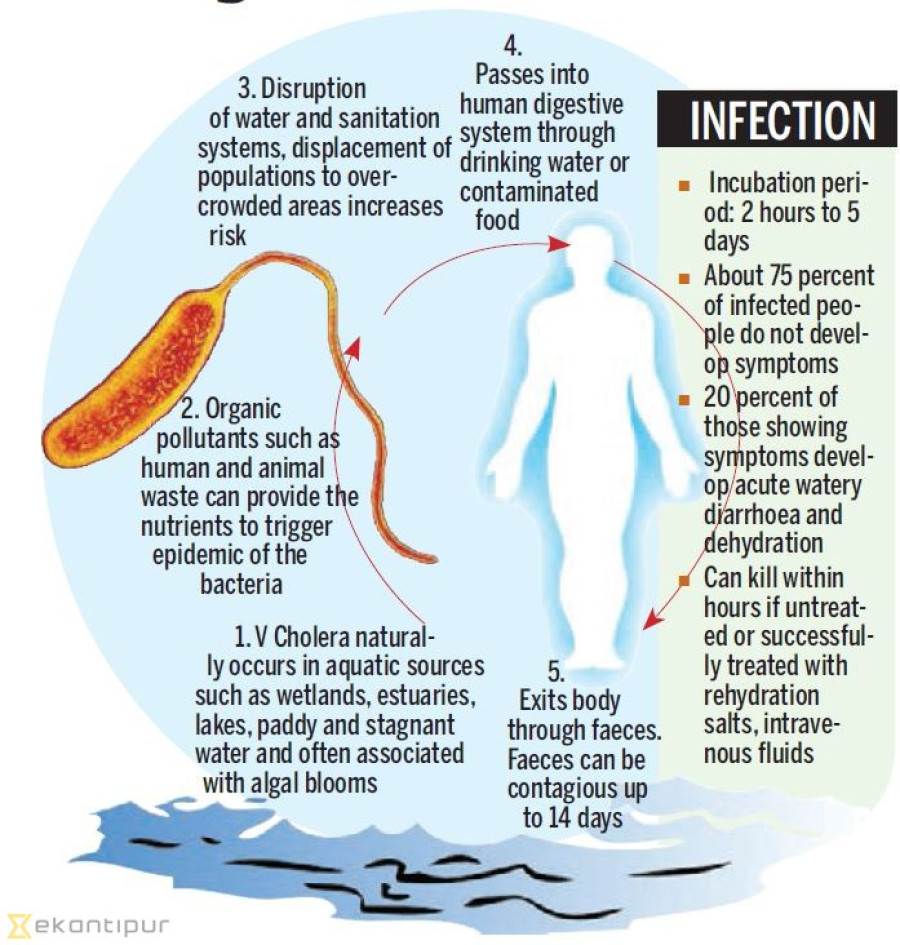Valley
Water samples collected from Kathmandu’s cholera-hit area for lab test
Technicians deployed from National Public Health Laboratory under the Department of Health Services on Wednesday collected three samples of drinking water from Tanchal of Kathmandu Metropolitan City-16, after a case of cholera was detected in the area.
Arjun Poudel
Technicians deployed from National Public Health Laboratory under the Department of Health Services on Wednesday collected three samples of drinking water from Tanchal of Kathmandu Metropolitan City-16, after a case of cholera was detected in the area.
Lab technicians were deployed at the request of the Epidemiology and Disease Control Division, another agency under the department, responsible for containing all epidemic breakouts in the country.
“We are waiting for the lab report to decide on further action,” Shambhu Gyawali, chief of surveillance and research section at the division, told the Post.
Gyawali said his office would launch an awareness campaign in the area against water borne diseases—cholera, diarrhea, dysentery, typhoid, hepatitis among others—and also alert Kathmandu Upatyaka Khanepani Limited, the water supplying utility about the risk of an outbreak.
The 45-year-old man from Tanchal, Kathmandu, was taken to the Sukraraj Tropical and Infectious Disease Hospital in Teku after he continuously suffered from loose bowel movement, nausea, vomiting and headache.
A test report of his stool sample confirmed that the patient was suffering from cholera. The National Public Health Laboratory upon examination of the sample also confirmed the presence of Vibrio cholera 01 ogawa serotype.
The hospital has informed the division about the confirmation of the deadly disease in the diarrhoeal patient.
Gyawali said that his office has also informed the World Health Organization Country Office and UNICEF Nepal about the first case of cholera in Nepal.
Earlier in March, the division had alerted the utility, after presence of E. coli and coliform was found in drinking water supplied by the utility to household taps in some areas of the Valley. Doctors say both the microbes are found in human faeces and cause diarrhoeal infection.




 9.7°C Kathmandu
9.7°C Kathmandu














